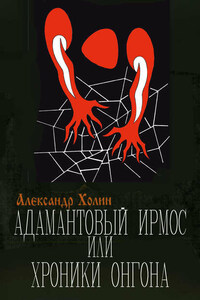It was the height of the Bath season in 1779, and there was scarcely any part of the city which did not feel the effect of the great tide of amusement and pleasure, which set in year by year with ever-increasing force, and made the streets, and parades, and terraces alive with gaily-dressed fashionable ladies and their attendant beaux.
The chair-men had a fine trade, so had the mantua-makers and dressmakers, to say nothing of the hairdressers, who were skilled in the art of building up the powdered bastions, which rose on many a fair young head, and made the slender neck which supported them bend like a lily-stalk with their weight. Such head-gear was appropriate for the maze of the stately minuet and Saraband, but would be a serious inconvenience if worn now-a-days, when the whirl of the waltz seems to grow ever faster and faster, and the "last square" remaining in favour is often turned into a romp, which bears the name of "Polka Lancers." There was a certain grace and poetry in those old-world dances, and they belonged to an age when there was less hurry and bustle, and all locomotion was leisurely; when our great-grandmothers did not rush madly through the country, and through Europe, as if speed was the one thing to attain in travelling, and breathless haste the great charm of travel.
And not of travel only. Three or four "at homes" got through in one afternoon, is a cause of mighty exultation; and a dinner followed by an evening reunion, for which music or recitations are the excuse, to wind up with a ball lasting till day-dawn, is spoken of as an achievement of which any gentlewoman, young or old, may feel proud.
The two ladies who were seated with their maid in attendance in a large well-furnished apartment in North Parade on a chill December morning in the year 1779, awaiting the arrival of the hairdresser, had certainly no sign of haste or impatience in their manner. The impatience was kept in reserve, in the case of the elder lady, for Mr. Perkyns and his attendant, for Lady Betty had now passed her première jeunesse, and was extremely careful that every roll should be in its right place, and every patch placed in the precise spot which was most becoming. Lady Betty's morning-gown was of flowered taffety, and open in front displayed a short under-skirt of yellow satin, from which two very small feet peeped, or rather were displayed, as they were crossed upon a high square footstool.
"Griselda, can't you be amusing? What are you dreaming about, child?"
The young lady thus addressed started as if she had indeed been awakened from a dream, and said:
"I beg your pardon, Lady Betty; I did not hear what you said."
"No, you never hear at the right moment. Your ears are sharp enough at the wrong. I never saw the like last evening at Mrs. Colebrook's reunion. You looked all ears, then."
"It was lovely music – it was divine!" Griselda said earnestly, and then, almost instantly checking the burst of enthusiasm which she knew would find no response, she said:
"Will you carry out your intention of paying a visit in King Street? Mr. and Miss Herschel receive guests to-morrow forenoon."
"Indeed, I vow I have but little inclination that way, but we will see. But, Griselda, take my word for it, you are playing your cards ill – staring like one daft at that singer who is no beauty, and forgetting to acknowledge Sir Maxwell Danby last evening when he made you that low bow. Why, child, don't you know he is a great catch?"
Griselda's cheeks flushed crimson.
"Your ladyship forgets we are not alone."
"Ha! ha! as if my waiting-maid was not in all my little secrets. No love-story is new to her, is it, Graves?"
The person thus referred to, who had been engaged in plaiting ruffles with a small iron, and sprinkling the fine lace with a few drops of starched water as she did so, on hearing her name, turned her head in the direction of her mistress, and said:
"Did you speak, my lady?"
"You know —you know, Graves. You know all about my billets-doux, and my pretty gentlemen."
If Melia, otherwise Amelia Graves, knew, her face showed no sign of intelligence. It was a stolid face, hard and plain-featured, and she was a strange mixture of devotion to her frivolous mistress, and strong disapproval of that mistress's ways and behaviour. The real devotion and affection for a family she had served for many years, often gained the day, when she turned over in her mind the possibility of leaving a service which involved so much of the world and its customs, which she was the indirect means of encouraging by her continuous attention to all the finery and gauds, in which Lady Betty Longueville delighted.
Lady Betty was the widow of a rich gentleman, to whom she had been married but a few years, when death ended what could not have ever been more than a mariage de convenance. An orphan niece of Mr. Longueville's, the child of a sister who had made what was considered a













